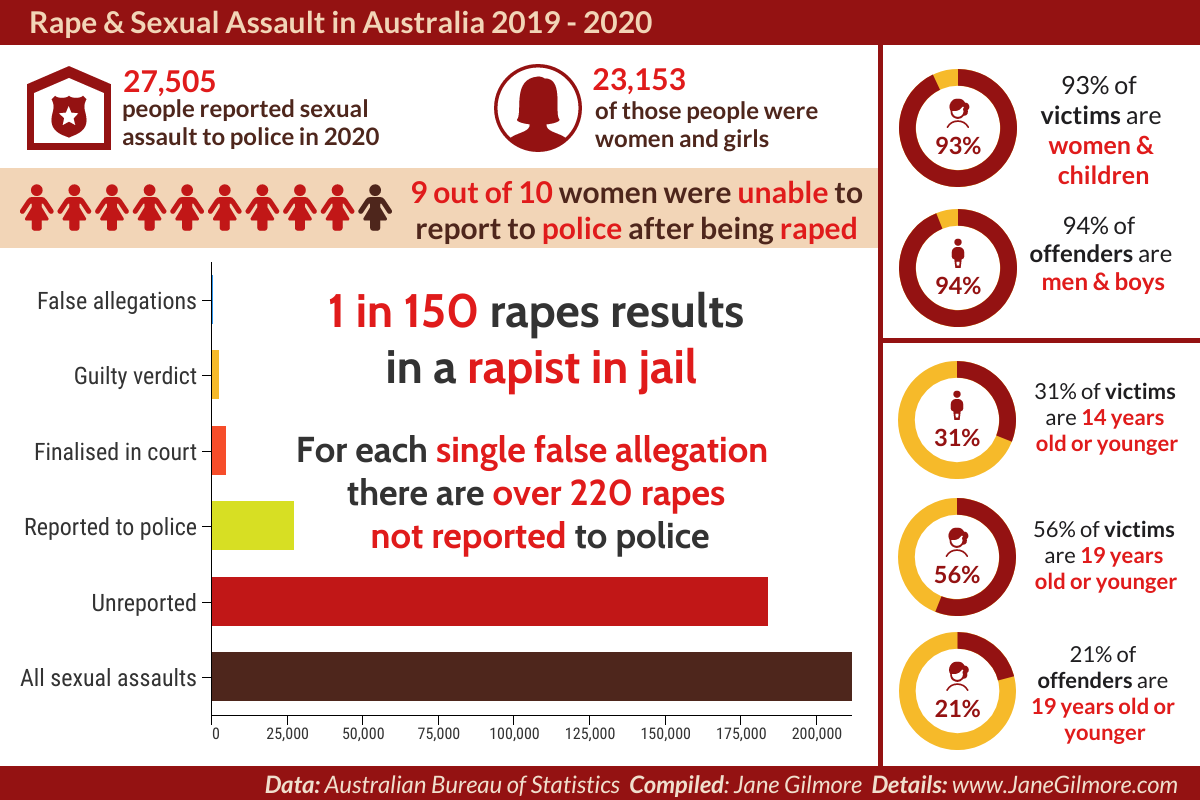Zane Alchin pleaded guilty last week to charges of using a carriage service to menace and harass, and was sentenced to a twelve month good behaviour bond. This was in response to comments Alchin made on Facebook, after one of his friends posted a screenshot of a woman’s Tinder profile. The woman and her friends took exception to their mockery and Alchin ended up posting over fifty comments during a two hour period, many of them vile and highly offensive.
One of his victims, Paloma Brierley-Newtown said “We got the result that I think was appropriate for the situation. The way that it was handled by the judge is questionable.”
It’s an interesting reflection, and it deserves further examination. The sentence, as she said, was appropriate, it was the judge’s attitude towards Alchin, his actions and his victims that was problematic. It’s reflective of a wider concern about the judiciary’s perception of men’s violence against women, and how that translates into taking effective action against online abuse.
These are some of the comments Alchin posted on the Facebook thread.
“The best thing about feminists is they don’t get action, so when you rape them it’s 100 times tighter”
“I’d rape you if you were better looking”
“What law am I breaking? I’m not the one out of the fucking kitchen”
“Say something back you fucking moles I’ve got sooooo much more to give and I’ll start with my cock in your grandmas ass”
“If you sucked my dick I’d slap your over the back of the head after it so you’d spit my cum out you ain’t worthy of swallowing my jizz”
Magistrate William Pierce explained these comments with an analogy.
“If you’re on the football field, you consent to a few bumps, so a few mildly explicit comments, in this analogy … your sexually explicit comments were the equivalent of socking someone in the jaw with a right hook.
“You overdid it.”
He also said “There was a vast overreaction by people — including Paloma [Brierley Newton], obviously, but lots of people — who have caused you to experience a great deal of pain, which you didn’t deserve for that”. Magistrate Pierce said Alchin was not inciting or threatening rape, and described the original Tinder post as “somewhat inflammatory comment of a sexual nature anyway”. In other words, he expressed sympathy to the perpetrator for the consequences of his actions, and implicitly blamed the victim for exhibiting sexual behaviour.
Alchin said in court that he copied some of the comments from an “anti-feminist website”. If someone was posting the equivalent comments on Facebook about terrorism, if they were quoting from ISIS sites and saying that westerners should be raped in the name of Allah, we’d have no trouble getting action from the criminal justice system and it would have the full support of the community. But men who post implicit support for violence against women don’t get anything like that kind of response, despite the fact that domestic and sexual violence is far more of a threat to Australians than terrorism.
It’s telling that Magistrate Pierce, who in 2013 granted Man Haron Monis bail for the alleged murder of his ex-wife, described the huge outcry against Alchin’s comments on Facebook as an “overreaction”, rather than what it actually was — a reaction to constant and insidious threats to women’s ability to live in an online world. It shows a distinct lack of understanding of how gendered online abuse is so prevalent, and so damaging.
Last week, prominent American feminist Jessica Valenti closed her twitter account after she received rape threats against her five year old daughter. The week before, Ghostbuster star Leslie Jones also closed her twitter account after weeks of vile racist abuse following the release of the all-female reimagining of the 1980s movie. Both women cited the lack of support from social media organisations and law enforcement. It might sound like a minor issue, being forced to close a social media account, but the reality is that journalists and actors depend on social media for their livelihood. Selling books, promoting articles and movies is almost impossible without it. So chasing women away from sites like Twitter and Facebook can have a significant effect on their ability to do their job. Here in Australia, far too many women are the targets of gender based abuse and misogyny, where rape threats are a standard go-to method of disagreeing with women. And how are women supposed to find redress, or even expect to be taken seriously in their objection to such vile abuse, when Magistrates describe their response as an “overreaction” and express sympathy for the men who perpetrate this abuse?
Magistrate Pierce isn’t unique, or even particularly unusual in his attitudes.
A recent study of judges sentencing remarks in Australian domestic homicide cases compared the differences in how judges described and evaluated the crimes and characters of male and female offenders. They found pervasive themes of victim blaming and excusing criminal behaviour in male offenders. Judges described male murderers as “distressed”, “depressed”, “anguished” and “out of control”. In one case a judge actually said of a murdered woman, “your wife was the source of the conflict”, and in most cases the murder was viewed in context of the man’s “anguish” over her leaving him or otherwise doing something to cause him pain. Female offenders were not given any of these excuses.
Male offenders were also described positively, as “a good provider”, “an outstanding employee”, “well-respected member of the community”, having a “caring nature” and lauded for “your concern for your immediate and extended family”. Female offenders were described as “bad at managing her financial affairs”, “lack of concern for your children’s well-being”, “callous, heartless, wicked person”, “no compassion”, “heartless”, “an extremely manipulative person”, “your wickedness knew no bounds”. Female offenders were, in a couple of cases, even described in terms of the sexual behaviour and dress sense: “within months, (you) started out afresh in life, with a new lover”. “Soon after his death, you adopted a completely different lifestyle. You dyed your hair, wore revealing clothes and brought out into the open a friendship with {new partner}”.
Obviously, murder is a far more serious crime than making misogynistic remarks on Facebook. But the underlying premise is that men’s violence against women is, if not excusable, at least understandable, when viewed in the context of women’s behaviour that men find upsetting.
Alchin’s lawyer argued that “in his mind he was defending his friend against these feminists”, a claim substantiated by Alchin himself: “I got it off an anti-feminist website. To offend a group of feminists that were harassing me and my friends”.
Rape is not something you say to “offend” women, rape is a horrific crime, with long lasting, traumatic effects. Even mentioning it as a means of silencing dissent is abhorrent and inexcusable. But until the attitudes to men’s violence against women change, in the media, in the courts and in public perception, this kind of behaviour will not stop. Alchin’s conviction is one small step, but the attitudes expressed by the Magistrate show we still have a long way to go.
This piece was also published on my Medium page
1800 RESPECT
Sexual assault, domestic and family violence counselling and support.
24 hours a day, 7 days a week.
Ph: 1800 737 732
www.1800respect.org.au
Suicide Call Back Service
24 hours a day, 7 days a week.
Ph: 1300 659 467
www.suicidecallbackservice.org.au
Kids Helpline
24 hours a day, 7 days a week.
Phone: 1800 55 1800
www.kidshelp.com.au
Child Wise National Abuse Helpline
Mon-Fri: 9 am – 5 pm
Ph: 1800 99 10 99
www.childwise.org.au
MensLine Australia
24 hours a day, 7 days a week.
Phone: 1300 78 99 78
www.mensline.org.au




